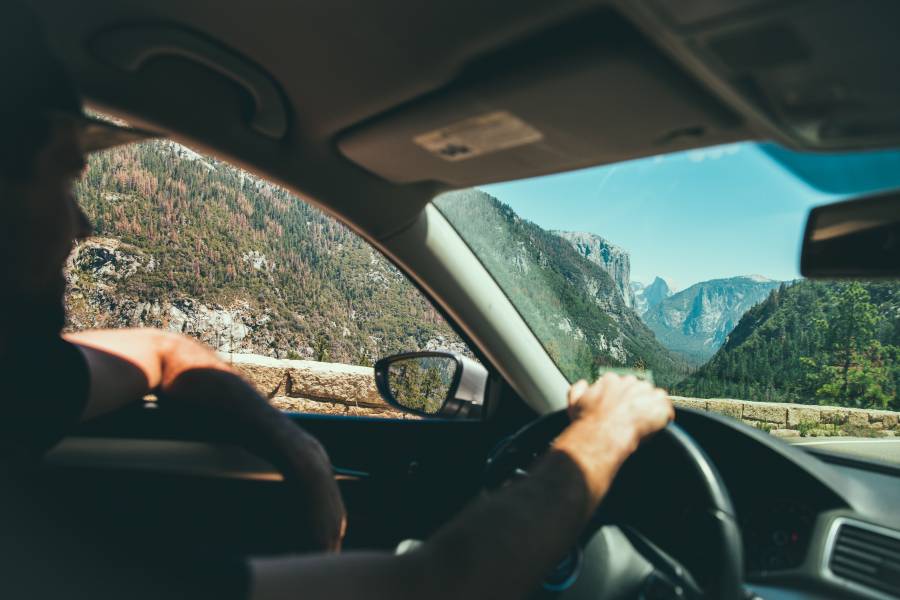Quick Navigation
Knocking sound when decelerating can refer to a range of distinct noises that various issues can result in.

It can be hard to point out the source of engine knock. Therefore, we’ve listed a few of the most prevalent causes of engine knock and their solutions to get you started.
What Is Engine Knocking?
Engines feature various moving parts, which result in the range of noises we experience.
However, if you start hearing knocking sounds when decelerating, it’s time to pay attention.
If you hear a loud knocking sound, the combustion is probably having an issue, especially if combined with a loss of power.
Still, most drivers have no idea how to distinguish various noises from their cars.
Causes Of Engine Knocking Sounds When Decelerating
Damaged Suspension Joints
If your vehicle is producing creaking or knocking sounds while decelerating, it can suggest worn-out or damaged suspension joints.
Driving with damaged suspension can make your vehicle feel unbalanced and unstable and may even cause loss of control.
Suspension joints essentially smooth out the bumps experienced throughout the journey and ensure that your ride is comfortable.
Solution
The suspension joints in your vehicle need to be repaired or replaced depending on the intensity of the damage.
A trip to an automobile repair shop can help you figure out the proper steps.
Damaged Brake Rotors
A knocking sound while decelerating may also point towards damaged brake rotors.
Driving with a damaged brake rotor is extremely dangerous for you and other drivers on the road.
In the worst cases, it can cause wheel lock-up, and you can lose control of the car.
Solution
To fix the issue of damaged brake rotors, you have a couple of options.
Machining the Brake Rotors
Machining involves resurfacing brake rotors. A professional will remove a part of the metal of the rotor to expose a fresh and smooth surface.
They will then use a lathe to make the surface level and flat. It will fix the knocking sounds while decelerating your vehicle.
Replacement
The replacement may be needed when the brake rotors are in such a bad condition that they can’t be machined or corrected.
Loose Callipers
Knocking sounds when decelerating can also occur if your vehicle has loose calipers or bolts. Untightened bolts will make noise as you slow down and apply brakes.
These brake calipers and bolts would require tightening so that they don’t turn into worse problems.
Moreover, driving with loose calipers or bolts is dangerous because you never know when you will lose control of the vehicle.

Solution
The good part about this issue is that it is easy to fix.
All you need to do is take out the brake calipers from their holes and inspect the bolt holes to see if there is any damage present.
In case of no damage, use a thread chaser to clean the caliper hole. Now, install the bolts and calipers and ensure they are tight and sturdy.
It should fix the knocking sounds when decelerating your vehicle.
Carbon Deposits
Carbon buildup can occur with carbon-based fuels like diesel and gasoline, even with carbon cleaning chemicals or detergents.
It can build on spark plugs, pistons, valves, combustion chamber walls, and cylinder walls.
The accumulation of carbon reduces chamber space, increases compression, and diminishes the firing and power stroke efficiency.
Carbon deposits may also form hotspots that burn the air-fuel mixture before the spark plug ignites it.
As the piston hits the peak of its stroke, the multiple firings are slightly askew in the chamber, causing a shockwave.
A knocking sound when decelerating is a common side effect. The results are the same if the hotspot detonation happens after the spark plug burns the mixture.
Solution
Carbon buildup in the combustor will reduce the chamber’s capacity and increase compression.
The accumulation obstructs the combustion process and reduces firing efficiency and the power stroke.
Cleaning the combustion chamber is usually enough.
Watch various YouTube videos and read and follow the instructions given. It should fix the knocking sounds when decelerating your vehicle.
Alternatively, you can take help from a reputable mechanic.
Low Oil Pressure
Knocking sound when decelerating can also be caused by low oil pressure.
The camshaft, lifters, cam lobes, valve stems, and rocker’s arms use oil to lubricate and disperse heat.
Oil is applied to the gap between pieces to lubricate and fill the lash or voids—the components’ knock’ when their gaps become too large due to wear or low oil pressure.
Before the oil can completely circulate into all crevices within the engine, the banging sound may be more audible on cold starts.
Modern vehicles which use hydraulic lifters to reduce lash and hence the banging are likewise affected by low oil pressure.
High engine temperatures can cause low-quality or low-grade oils to thin, preventing adequate oil pressure development.
Unless there is a leak anywhere in the oil system, using the manufacturer’s suggested engine oil should correct oil pressure.
To discover if there’s an oil leak, look for white ash on the spark plugs and oil on the pavement under the engine or around the seals.
Also, oil is likely consumed within the combustion chambers if the exhaust is bluish-black.
Solution
An oil change is the very first step. Oil lubricates all the engine’s moving parts and helps dissipate heat and remove metal filings and other debris.
It will fix the knocking sounds when decelerating your vehicle.
The oil filter removes most of the particles, but sludge accumulates and recirculates into engine parts.
Conclusion
There are various reasons why your vehicle’s engine may be producing a knocking sound when decelerating.
The issues can involve damaged suspension joints, brake rotors, loose calipers, carbon deposits, low oil pressure, etc.
If left uncatered, these issues can result in engine damage.
The solutions include changing the suspension joints and brake rotors, using a rich air/fuel mixture, cleaning the combustion chamber, and tightening the bolts and calipers on the brake.
However, if the knocking sounds persist, visit a mechanic as soon as possible.

Kevin has been hanging around cars and automobile magazines since he knew what a car is. He grew up in his father’s 1995 Mercedes E320 Wagon and Volkwagon Phaeton W12 2004. He rides his first car, a manual 1979 Porche 911SC.
Currently, he owns an Acura Integra GS-R. During his childhood, he showed a keen interest in how things actually work and fix them. This passion transforms into his eternal love for cars and bestows him an ideal position in one of the leading automobile companies; whenever he finds time, he takes out his Acura and opts for the longest possible route to find hidden wholesome pleasure in a road trip.
Want to read some of the articles written by Kevin? Head to our blog section to find out all the articles written by Kevin.






![Gas Gauge Goes Up And Down [Causes + Solutions] Gas Gauge Goes Up And Down [Causes + Solutions]](https://carsupercare.com/wp-content/uploads/2022/04/Gas-gauge-goes-up-and-down-Causes-and-Solutions.docx-150x150.jpg)